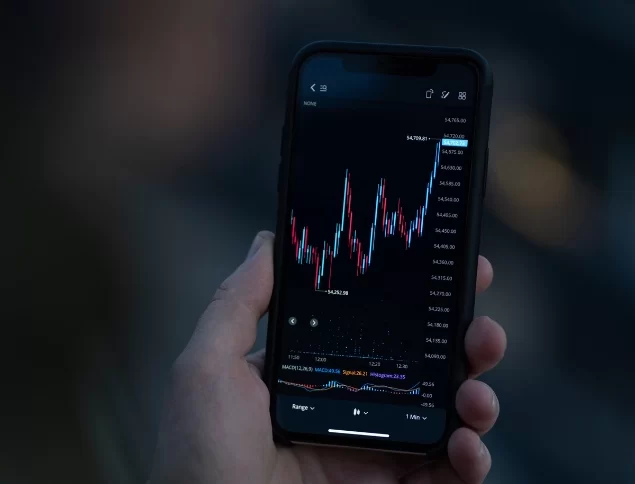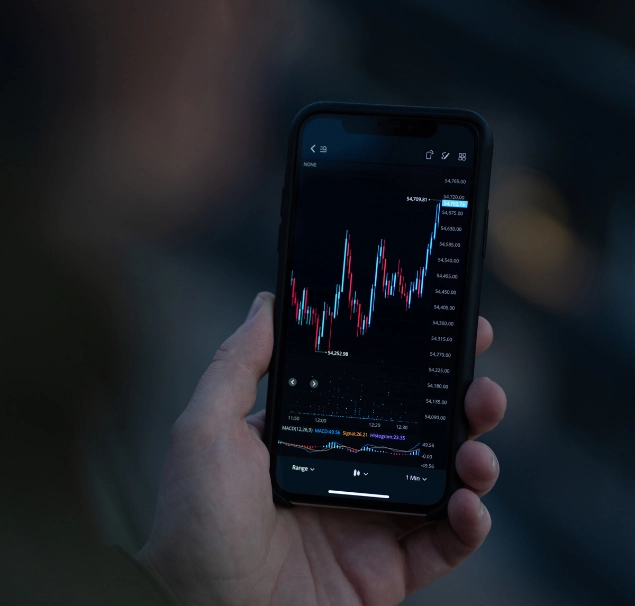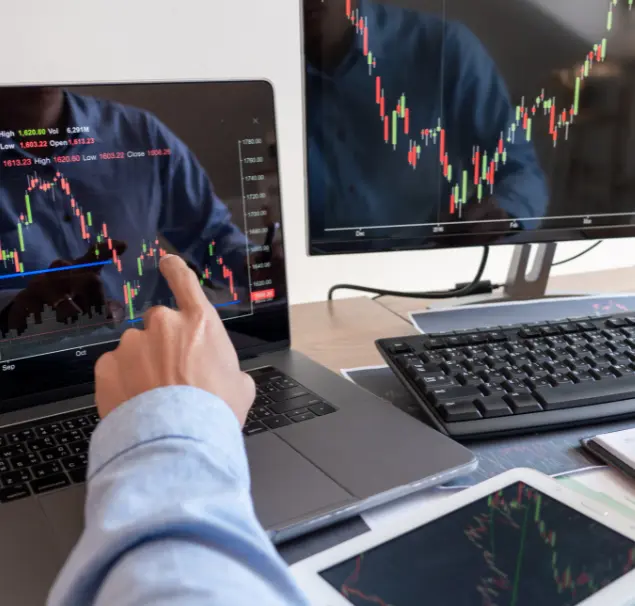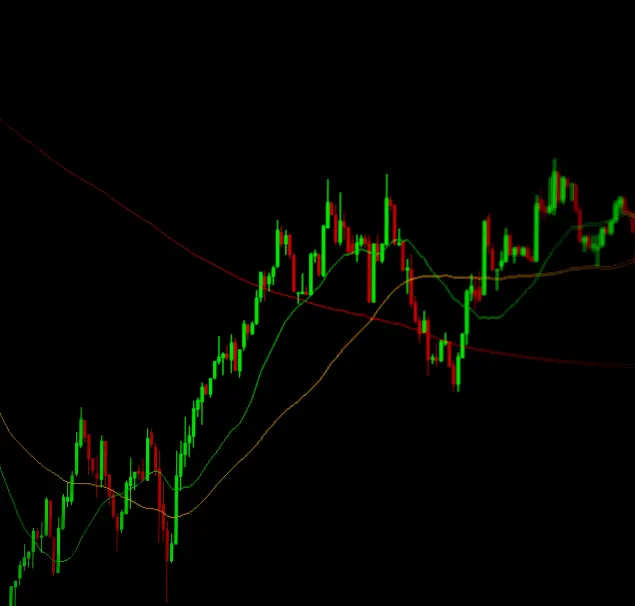
Introduction: Overview of Forex Trading Landscape
Forex, or foreign exchange, trading involves the buying and selling of currencies on a global market. It is one of the largest financial markets in the world, with a vast daily trading volume and continuous operation 24 hours a day, five days a week. This market attracts a diverse range of participants, from individual retail traders to large institutions, due to its liquidity and the potential for profit from exchange rate fluctuations.

Brief on the High-Risk, High-Reward Nature of Forex Trading
Forex trading is known for its high-risk, high-reward nature. The potential for significant profits is substantial, but so is the risk of substantial losses, largely due to market volatility and leverage. Leverage allows traders to control large positions with a relatively small amount of capital, amplifying both gains and losses.

Identifying Key Traits and Practices That Distinguish Successful Forex Traders from Others
Success in Forex trading doesn’t just come from luck; it requires certain traits and practices. This article aims to uncover the key characteristics and habits that set successful Forex traders apart from others. Understanding these can provide invaluable insights for those aspiring to excel in this challenging yet rewarding field.
Table Of Content
Deep Understanding of the Forex Market
A profound understanding of the Forex market is a cornerstone of successful trading. It involves more than just knowing how to read charts or understanding basic trading mechanisms.
Market Structure and Mechanics
Successful traders deeply understand the structure of the Forex market, including how different currency pairs behave, the impact of global trading sessions, and the intricacies of leverage and margin.
Economic Indicators and Their Impacts
Economic indicators like GDP, interest rate decisions, and employment data play a crucial role in currency valuation. Successful traders stay abreast of these indicators and understand how they are likely to impact different currencies.
Understanding Geopolitical Influences
Geopolitics can significantly affect the Forex market. Events like elections, trade wars, and international conflicts can cause substantial volatility. Successful traders keep a close eye on global events and understand how to interpret their potential market impacts.
Analysis Techniques
Proficient Forex traders employ a combination of technical and fundamental analysis to guide their trading decisions. Technical analysis involves studying charts and patterns to forecast future price movements, while fundamental analysis involves analyzing economic, social, and political factors.
In summary, a deep understanding of the Forex market, encompassing its mechanics, the influence of economic indicators, and geopolitical factors, is essential for successful Forex trading. This foundation sets the stage for effective strategy development and risk management, which are critical components of sustained trading success.
Risk Management Strategies
Role of Risk Management in Forex Success
Effective risk management is arguably the most critical aspect of successful Forex trading. It involves identifying, assessing, and taking steps to minimize the various risks associated with trading. Proper risk management can mean the difference between sustained success and costly losses in the Forex market.
Effective Use of Stop-Loss and Take-Profit Orders
Stop-loss and take-profit orders are essential tools in a trader’s risk management arsenal. A stop-loss order automatically closes a trade at a predetermined price to prevent further losses, while a take-profit order does the same to lock in profits. These tools help traders manage their trades without letting emotions interfere.
Diversification and Position Sizing
Diversification involves spreading risk by not putting all capital into a single trade or currency pair. Position sizing is about determining the right amount of capital to allocate to each trade, considering the account size and risk tolerance. Both are key in managing overall trading risk.
Emotional Discipline and Patience
Emotional discipline and patience are vital traits of successful Forex traders. The ability to control emotions, such as fear and greed, is essential in making objective trading decisions.

Managing Emotions in Trading
Emotions can lead to impulsive decisions like chasing losses or trading excessively. Successful traders have strategies in place to manage these emotions, ensuring that their trading decisions are based on logic and strategy rather than emotions.
The Value of Patience in Waiting for the Right Trade
Patience is a virtue in Forex trading. It’s about waiting for the right trading opportunity that aligns with your strategy, rather than making hasty decisions. This often involves spending considerable time analyzing the markets without executing any trades.
In conclusion, a deep understanding of the Forex market, effective risk management strategies, and emotional discipline are crucial components that set successful traders apart. These elements help in navigating the complexities of the Forex market and in making decisions that can lead to long-term trading success.
Consistent and Well-Tested Trading Plan
Importance of a Tailored Trading Plan
A consistent and well-tested trading plan is a cornerstone of successful Forex trading. This plan serves as a roadmap, guiding traders through market uncertainties. It outlines the trader’s strategy, including entry and exit points, trading times, currency pairs, and risk management rules. A tailored plan, personalized to fit a trader’s risk tolerance and goals, ensures disciplined and objective trading.
The Role of Backtesting
Backtesting is a critical step in developing a trading plan. It involves testing the strategy using historical data to assess its viability and potential profitability. This process helps traders fine-tune their strategies, identify any weaknesses, and adjust parameters to improve performance.
Adapting the Plan According to Market Changes
The Forex market is dynamic, and successful traders understand the importance of adapting their trading plans in response to changing market conditions. This might involve modifying strategies, risk parameters, or even taking a step back during highly volatile or unpredictable market phases.
Utilization of Technology and Tools
Embracing Technological Advancements
Technological advancements have significantly transformed Forex trading, making it more accessible and efficient. Successful traders leverage these technologies to enhance their trading strategies and decision-making processes.
Automated Trading Systems
Automated trading systems execute trades based on predetermined criteria, offering speed and precision that surpasses human capabilities. While they offer many advantages, successful traders use these systems as a complement to their strategies, not as a complete substitute for manual trading.
Analytical Tools and Charting Software
Advanced analytical tools and charting software provide traders with an in-depth analysis of market trends, currency movements, and potential trading opportunities. Utilizing these tools can lead to more informed and timely trading decisions.
Continuous Learning and Adaptability
Staying Updated with Market Trends and Forex Education
The Forex market is constantly evolving, and staying updated with the latest trends, news, and educational resources is crucial. Successful traders commit to lifelong learning, continually updating their knowledge and skills.
The Role of Continuous Education
Continuous education involves staying informed about global economic events, understanding new trading technologies, and refining trading strategies. It also includes learning from other successful traders, whether through mentorship, webinars, or trading forums.
Adapting to Market Changes and Learning from Losses
Adaptability in Forex trading means being able to change strategies or tactics in response to market conditions. It also involves learning from losses, which are inevitable in trading. Successful traders analyze their losses to understand what went wrong and how to avoid similar mistakes in the future.
In summary, a consistent and well-tested trading plan, the effective utilization of technology and tools, and a commitment to continuous learning and adaptability are key factors that contribute to success in Forex trading. These elements enable traders to navigate the complexities of the market, make informed decisions, and continually evolve their strategies for long-term success.
Networking and Learning from Others
The Importance of Community and Mentorship
In the world of Forex trading, networking and learning from others play a vital role in a trader's growth and success. Engaging with a community of traders provides invaluable opportunities for mentorship, sharing experiences, and gaining new perspectives.
Learning from Experienced Traders
Interacting with experienced traders allows for the exchange of strategies, insights, and tips that are not readily available in textbooks or online courses. These interactions can provide practical, real-world advice and help newer traders avoid common pitfalls.
Participating in Trading Forums and Networks
Active participation in trading forums and networks can be greatly beneficial. These platforms allow traders to discuss market trends, seek advice, and stay updated with the latest trading news. Engaging in these communities fosters a sense of camaraderie and provides support, which is particularly valuable during challenging trading phases.
Realistic Expectations and Goals
Setting Achievable Goals
Successful Forex trading requires setting realistic goals and expectations. These should be based on personal risk tolerance, market knowledge, and available capital, rather than on arbitrary or overly ambitious targets.
Understanding the Reality of Forex Trading
It’s important to understand that Forex trading is not a guaranteed way to make quick money. Success requires time, effort, and patience. Traders should be prepared for the possibility of losses and the need for continuous learning and improvement.
Long-term Perspective vs. Get-Rich-Quick Mentality
Adopting a long-term perspective helps in building sustainable trading strategies, as opposed to chasing quick profits. A long-term approach focuses on steady growth, learning, and adapting strategies to changing market conditions.
Conclusion
In conclusion, the journey to becoming a successful Forex trader involves more than just understanding the market and executing trades. It includes developing a deep understanding of the market, implementing effective risk management strategies, and maintaining emotional discipline. A well-tested trading plan, leveraging technology, continuous learning, and adaptability are also crucial. Additionally, networking with other traders and setting realistic goals are important for sustainable success. By embracing these practices, traders can navigate the complex world of Forex trading with greater confidence and proficiency, setting themselves apart from others in the field.
